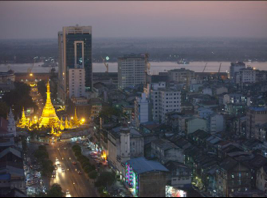Myanmar has signed the New York Convention, which essentially means that international business contracts in the country can now be predictably enforced.
On March 6, the Myanmar Parliament agreed to remove the last major obstacle to foreign investment in the country by signing the Convention on the Recognition and Enforcement of Foreign Arbitral Awards, also known as the New York Convention. With this convention in place, Myanmar agrees to follow the internationally accepted system of arbitration; essentially this means that international business contracts in the country can now be predictably enforced. This action brings Myanmar’s economic policy in line with the standards of market economies around the world and U.S. policy should reflect that shift.
Effective foreign policy depends on credibility, and this applies to enforcing punishments as well as rewards. After years of punishment in the form of sanctions, Myanmar’s new Foreign Investment Law (FIL) is the kind of behavior that deserves to be rewarded. The law, which came in to force at the end of 2012, represents a huge push to attract foreign capital and develop the country. Key provisions of the law include a guarantee against state expropriation, long-term property leases, a five-year tax holiday and a tax exemption on profits reinvested in Myanmar.
The FIL also includes several clauses to ensure that gains from economic development reach the Myanmar people. For example, all unskilled workers must be Myanmar nationals. This provision avoids the problem faced in other countries of foreign companies bringing in their own personnel to exploit natural resources without providing employment opportunities for locals.
However, there are several areas in the FIL where the U.S. must continue to push for specific reforms. The most critical is the State-Owned Economic Enterprises Law, which gives the Myanmar government extensive control over industries such as resource extraction, air transportation, banking and insurance. In some industries the FIL designates “restricted sectors” that allow up to 80% foreign ownership. In others foreign ownership is prohibited entirely. This prohibition ranges from understandable restrictions on the defense industry to troubling prohibitions on Myanmar-language publishing and media.
Sanctions and the threat of sanctions have as much of a psychological as a practical effect on markets. The United States has succeeded in getting to this point with Myanmar by lifting sanctions, but U.S. policy must further encourage investment by removing the threat of reimposing sanctions. This consists largely of changing the tone of statements to make it clear that the removal of sanctions is a permanent policy. Foreign investors can only be fully confident when they are certain that sanctions will not reappear and threaten their investments.
Critics of the “development first” mentality of U.S. policy towards Myanmar raise the objection that without the threat of sanctions, the U.S. loses its only tool to protect human rights. Furthermore, to invest now will reward the cronies who benefited from corruption under the junta. Indeed, casual investors should be aware even with tax incentives and anti-nationalization clauses, a deeper business network of state-favored enterprises puts outsiders at a disadvantage.
However, these “cronies” are also the key stakeholders upon whom the future of Myanmar’s democratization depends. The country’s well-connected businessmen, even those closely affiliated with the old junta, wield considerable power and influence. If they feel threatened by potential punishments and targeted sanctions, they might back the return to military rule; yet, if business leaders view liberalization and reintegration with the West as potentially beneficial to their financial interests, they will likely throw their support behind democratizing reforms to the benefit of everyone in Myanmar.
Beyond the obvious material gains from development, Myanmar’s people will get other intangible benefits from access to the global economy. Human rights champion Aung San Suu Kyi said, “I am very much in favor of investment that will help to improve infrastructure… When I think of infrastructure I think immediately of communications…and primarily in terms of cell phones.” Providing Myanmar with the foreign direct investment and technical advice to build strong telecommunications infrastructure provides access to information. The ability to communicate is critical to organizing for both economic opportunity and political action.
In Myanmar, U.S. policymakers do not have to choose between economic development and human rights promotion. With its new investment law, the government of Myanmar has done everything required to meet regional and international standards of economic policy. Now is the time to reward good behavior by encouraging investment. The U.S. should ensure that Myanmar follows through on the reforms it has promised, not with the threat of reimposing sanctions, but with the prize of prosperity that comes with foreign investment.
Note: The post is part of two op-eds addressing investment in Myanmar by Taylor Wettach and Michael Madoff. This piece encourages investment in Myanmar and US policy change. Its companion piece cautions potential investors in Myanmar, emphasizing the political risks.











